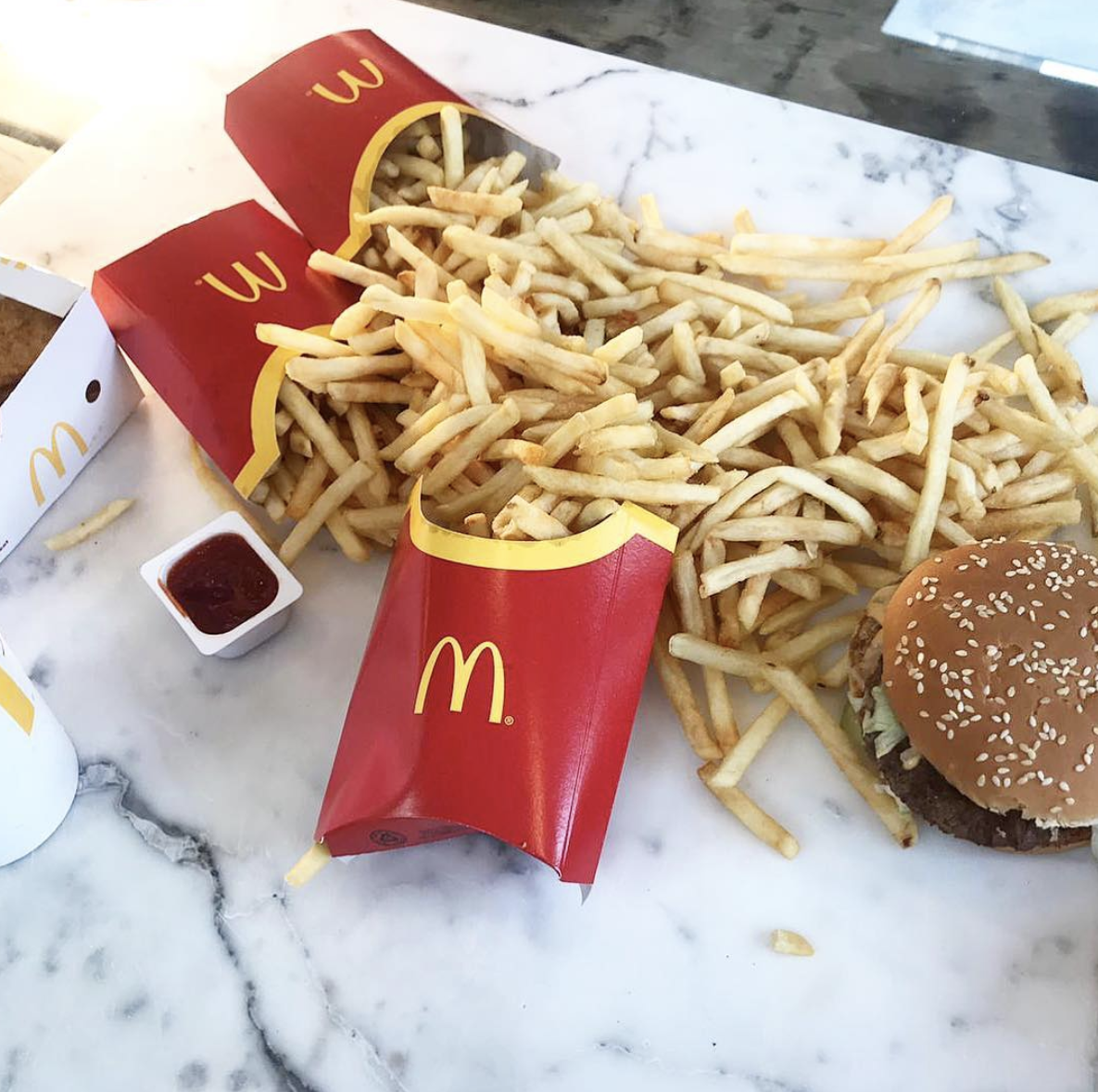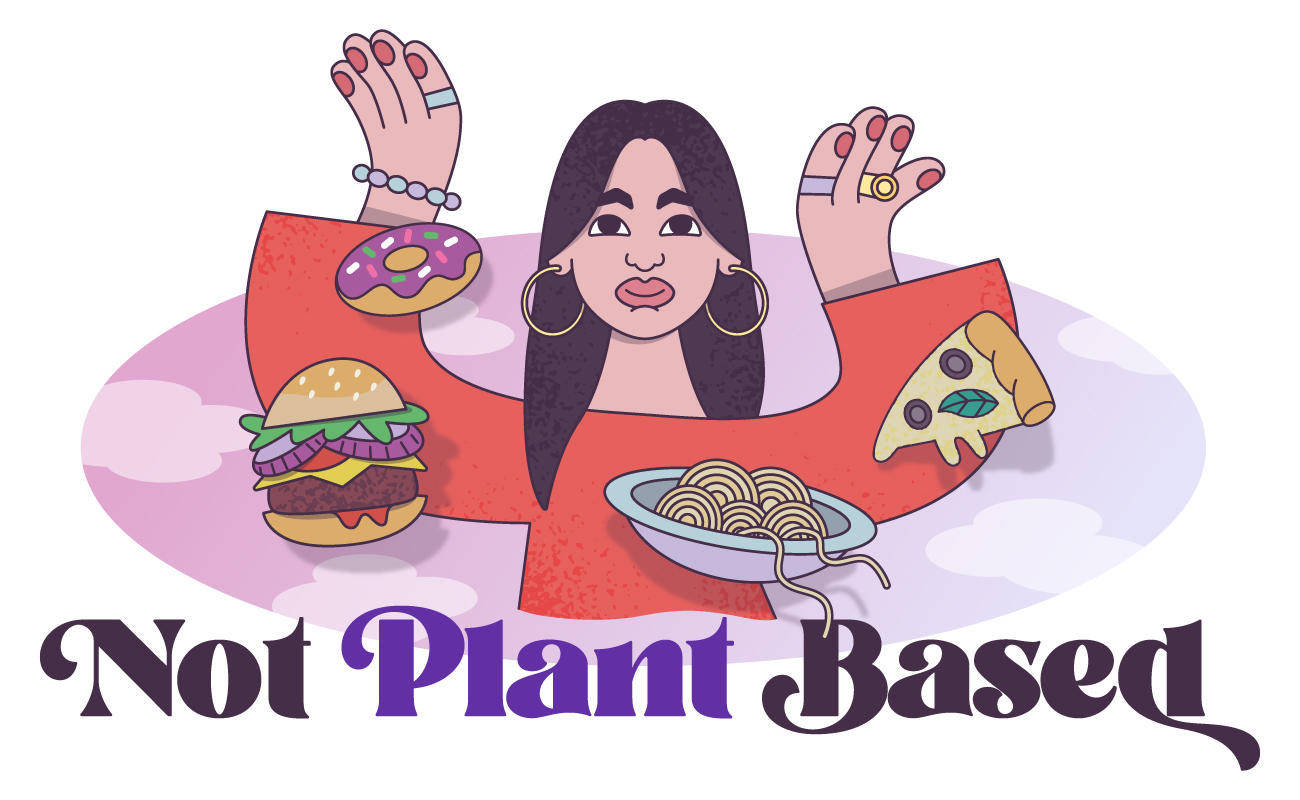
Pancake Day was always a momentously joyous occasion in our house. Each year, my two brothers and me would froth at the mouth in hungry debate as we all boasted about how many pancakes we thought we could stomach this year – our bellies never turned out to be as big as our eyes. Each Shrove Tuesday was a real ritual; as Mum would prepare the batter, slice the lemons and wedge a tablespoon into a packet of granulated sugar, ready for us to douse our pancakes when they finally finished cooking. When you’re young, turning one side of a pancake golden brown in a frying pan feels like a lifetime, especially when you’re eager to try out your flipping technique and see if you’ve rusted up a little since the year before. Batter would splatter against the tiles and we would heave with achy laughter, as my little brother’s pancake would always end up in a scrambled mess. Even my dad – a protestant with no interest in partaking in any activity remotely religious – would get involved.
I grew up Catholic, technically. Something I believed to have more significance when I was too young to realise that having two Irish parents meant this was more of a political statement than a devotion…and Catholic schools tended to be better funded, which explained why we all stopped going to church every Sunday after my youngest brother secured his studentship. I remember telling my mom that I didn’t want to be Catholic anymore, when I reached my teens and was old enough to rebelliously dye my hair and get an uncouth piercing. She didn’t seem to care much.
When I was in primary school, I remember taking my religious upbringing very seriously, praying in my own time and going to confession before the age of ten, where I “confessed” to kicking my friend Alana off of the bed and stealing her drink – things most children this age do. The horror! Involved in this loyalty was lent, which begins the day after Pancake Day, and lasts for 40 days and 40 nights. Lent was an opportunity to show how serious I was about my faith, and as a result meant giving up all the things I loved in circulation: crisps, chocolate and sweets. This was always very difficult to do, given my childish sweet tooth and adoration for snacks, but I persisted each time, feeling only a slight sense of achievement coupled with a feeling of missed opportunities by the time Easter came. I mean, can you imagine going to a children’s birthday party and not being able to eat the cake? There were youngsters who of course were less of a teacher’s pet than me, and took the fasting less seriously. I remember a girl in my school telling me she was giving up mashed potato because she hated mashed potato. Even though I’d well and truly “given up” my Catholicism by the time my eating disorder struck, it did get me thinking about what a great gift it would be to be able to manipulate this tradition for my own benefit, which at the time was to lose weight.
You, reading this, might not be Catholic or Christian, and might not have a clue what Lent is or what the hell I am talking about. So I’ll explain in brief (or rather Wikipedia will): Lent is a solemn religious observance in the Christian liturgical calendar that begins on Ash Wednesday and ends approximately six weeks later, before Easter Sunday. The purpose of Lent is the preparation of the believer for Easter through prayer, mortifying the flesh (aka fasting), repentance of sins, almsgiving (charity), and self-denial (abstinence from pleasures). In Lent, many Christians commit to fasting, as well as giving up certain luxuries in order to replicate the sacrifice of Jesus Christ’s journey into the desert for 40 days before beginning his public ministry, during which he endured temptation by Satan.
Pressures to alter your diet are somewhat prevalent within Christianity, what with only eating fish on a Friday, “clearing out your cupboards” on Shrove Tuesday, fasting throughout lent and over indulging at Easter and Christmas – the last two albeit are not necessarily spelled out in the bible to my knowing. These pressures are true across other religions too, although my knowledge on this is minimal given that my school would not allow us to learn about any other religion besides Catholicism (no matter how much we would ask), I do know as little as that to be a Muslim involves diet alterations such as not eating pork and fasting during Ramadan, and that of course Muslims get eating disorders too. Often times, people can be exempt from fasting during Ramadan for medical reasons, such as having an eating disorder.
The trouble with cutting things out of your diet and restricting what you eat for various periods of time when you have an eating disorder, whether for environmental, religious, ethical or other reasons, is that it can become a gateway for further, prolonged restriction even beyond the time of fasting, and can worsen the mental illness. Phillipa Hay, a clinical psychiatrist and the chair of mental health at Western Sydney University’s School of Medicine, has said that cultural practices can be used to justify internal motivations. I can’t speak for other faiths, nor would I want to, but certainly for me and my short-lived Catholicism, fasting during Lent would have been very dangerous for my health and my eating disorder, even if that only meant omitting one or two things from my diet.
When I would restrict, and I don’t mean during Lent but in order to restrict my calorie intake to lose weight, Easter provided a scary yet exciting opportunity for me to binge to my heart’s content on chocolate for one day only – because it was simply impossible for me to bypass all the goodies Mom had bought for me. What was I meant to do, bin it? Give it to someone less fortunate? Not a chance. Battling with binge eating disorder and bulimia becomes especially dreadful during holidays where indulgence is encouraged, and I would spend most of these throughout my eating disorder miserable, bloated and ridden with guilt. In my mom’s piece that she wrote for Not Plant Based, she reminded me of one Easter where I ate a giant Easter egg in one short sitting, despite her warnings, because I simply could not stop myself. It’s very difficult to enjoy eating that amount of chocolate when all you want to do is cry with the pain and embarrassment of your illness. Over time, I have learned that the best way to feed my body is with consistent balance, and not to deprive myself with a view to fill myself later – a concept which unfortunately fasting over Lent encourages.
Here’s a controversial idea: why don’t we stop feeling bad for not fasting over Lent when it negatively affects our mental health? I understand that to be Muslim and to not eat pork is a different matter entirely and an issue I cannot comment on personally, but for Lent, I can. There are other things you can do during Lent to show a commitment to your faith, like doing some charitable work (almsgiving), going to confession or through prayer. Or perhaps you could even give up something that isn’t food related, like using social media (yeah, right!), or being rotten to people in the morning. Religious sacrifices are supposed to be to better ourselves, and I believe that we cannot better ourselves if we are too medically unwell for it not to harm. Don’t allow anyone to make you feel bad for doing what is best for you.




Wow this might be one of my favorite articles you have written. During my recovery, I have thought really deeply about the ways that my Catholic upbringing and devotion helped contribute to my eating disorder and all the ways I tried to justify it. In particular, the praise of restriction during Lent truly lead me to believe that my moral quality was directly related to my ability to restrict. And during university, when I became more actively involved in a catholic community, this sense of morality related to food wasn’t strictly limited to the season of Lent, we would fast during many other parts of the year as well. I found that as I started to remove myself from Catholicism, the thoughts and ideas around restriction determining my moral value really stuck around and contributed into the development of my disorder. Basically I just let all my guilt and shame about being a poor Catholic be directed shifted into guilt and shame around food and exercise choices. It’s really amazing how evenly and seamlessly they aligned.
So thank you for writing this and sharing your personal experience. It’s not often that people talk about how restriction doesn’t have to be necessary during this season and the anxiety that can come along with feeling that pressure, especially during eating disorder recovery.
The three traditional practices during Lent are prayer, fasting, and almsgiving.
At Easter we enter deeply and joyously into the reality, the truth, of just what he has done to restore the garden to us, to make our lives beautiful and whole again. But in Lent it seems to me that the call is to simply be with him in the world as it is. And if we approach it that way, the customary practices of Lent fall into place with a certain naturalness, an obvious meaning and value: prayer, fasting, almsgiving. We live in the desert: we grieve over what is lost, over what has been marred (fasting); we lift our voices to God to continue and complete his work of saving love (prayer), and we do our little part, whatever we can do, to redress the pains, heal the hurts of the world (almsgiving). But in all of this, it is being with Jesus that makes our Lent fruitful, makes our lives joyful even in the midst of the desert.